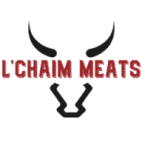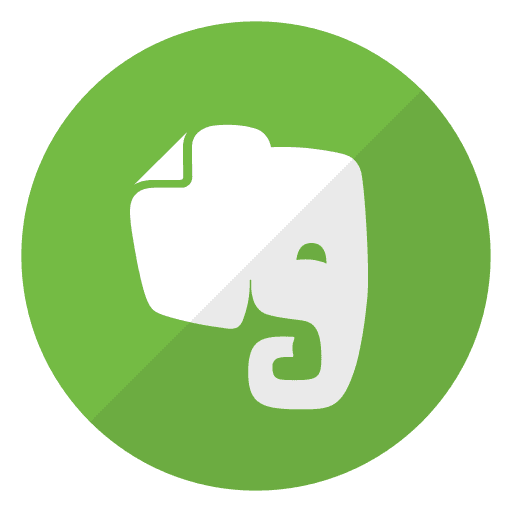This website stores cookies on your computer. These cookies are used to improve your website experience and provide more personalized services to you, both on this website and through other media. To find out more about the cookies we use, see our privacy policy.
Bring Aboard A
Creative Content Writer Within 24 Hours
Our content writers blend creativity with expertise to deliver content that captivates, educates, and drives results.
Clients rate Webevis Content Writer Expert 4.9 / 5.0 on average based on 4,330 reviews.
3 Steps To Hiring A Dedicated Content Writer With Webevis
Engage
Initiate the process by reaching out to us with your content requirements.
Assess
Our team carefully evaluates your needs to match you with the perfect content writer for your project.
Collaborate
Work closely with your dedicated writer to achieve your content goals and elevate your brand's online presence.
Our Content Writers Pool
- Diverse Expertise Across Varied Niches And Industries
- SEO-Optimized Content For Higher Search Engine Rankings
- Engaging, Creative Writing That Captivates Audiences
- Content That Aligns Seamlessly With Your Brand Identity
- Consistent, Timely Delivery Of Quality Content
- High-Quality Content Without Breaking The Budget
Our Content Writing Services
Our diverse content writing services, tailored to your needs, from blog posts to email marketing, are all designed to engage your audience effectively.
Blog Posts & Articles
Website Content
Product Descriptions
Social Media Content
Email Marketing
Editing And Proofreading
Content Strategy Consulting
Why Choose Our Content Writers?
Our content writers are your bridge to success. Their expertise, versatility, and SEO mastery ensure engaging, reliable, high-quality content that resonates with your audience and boosts your brand.
Skilled Wordsmiths
Our writers are skilled professionals with expertise across diverse niches.
Compelling Content
We create content that is compelling, informative and resonates with your audience.
Versatility
Adaptability to diverse topics and industries ensures tailored content for your needs.
Optimized for SEO
Our content is optimized to enhance your online visibility and search engine rankings.
Audience Engagement
Captivating storytelling that resonates with your audience and boosts brand connection.
Reliability
Consistent on-time delivery and adherence to your content strategy and goals.
Tools and Platforms
Were generated in sales by our marketers for our customers in 2021 What your Webevis experts use to help you grow

Easy Expert Hiring
Finding specialized content writers has never been easier. Our seamless talent acquisition process connects you with experts, ensuring a smooth and efficient hiring experience.




Eager To Elevate Your Brand With Exceptional Content?
Our skilled wordsmiths craft compelling, SEO-friendly content that engages your audience and boosts your brand's online presence.
The Art And Science Of Hiring Content Writers
Content writing is the lifeblood of successful online communication. It is the art of crafting words that convey information and captivate, engage, and convert. This guide will explore everything you need to know about hiring content writers to supercharge your online presence.
Why Does Content Matter?
Content plays a pivotal role in today's digital landscape for several reasons. Firstly, it serves as your brand's voice, conveying your message, values, and expertise to your audience. Well-crafted content establishes trust and authority within your industry, fostering credibility. Moreover, search engines reward high-quality, relevant content with higher rankings, driving organic traffic to your website. Content also serves as a powerful tool for audience engagement and retention, keeping visitors on your site longer. Compelling content is the linchpin of effective online marketing, influencing customer decisions, nurturing leads, and driving conversions. In short, content matters because it drives your digital success.
What Skills Should You Look For In A Content Writer?
Hiring a proficient content writer is pivotal for your brand's success. Here are key skills to seek:
1.
Exceptional Writing Skills
Strong grammar, style, and tone for diverse content needs.
2.
SEO Knowledge
Ability to optimize content for search engines.
3.
Research Proficiency
Skill in gathering and synthesizing information.
4.
Adaptability
Capacity to write across various niches and formats.
5.
Creativity
Innovative thinking for engaging, original content.
6.
Deadline Management
Consistent delivery under tight schedules.
7.
Communication
Clear and concise writing for effective messaging.
8.
Editing and Proofreading
Attention to detail for error-free content.
9.
Content Strategy
Understanding of target audience and content goals.
10.
Collaboration
Cooperation with designers, marketers, and editors.
What Are The Tools Used By Content Writers?
Content writers employ various tools to streamline their work and enhance content quality. Here are some essential tools:
1.
Word Processors
Writers often use word processing software like Microsoft Word or Google Docs for drafting and editing.
2.
Grammar and Spelling Checkers
Tools like Grammarly and Hemingway help writers ensure error-free content.
3.
Keyword Research Tools
Platforms like SEMrush and Ahrefs assist in finding relevant keywords for SEO optimization.
4.
Content Management Systems (CMS)
WordPress and Drupal are popular CMS choices for publishing and managing web content.
5.
Plagiarism Checkers
Copyscape and Turnitin ensure originality in content.
6.
Project Management Tools
Tools like Trello and Asana aid in task organization and collaboration.
7.
SEO Plugins
WordPress SEO plugins like Yoast provide on-page SEO guidance.
8.
Content Idea Generators
HubSpot Blog Ideas Generator and Portent's Content Idea Generator help writers brainstorm topics.
9.
Image Editors
Graphic design tools like Canva are used for creating visuals and infographics.
10.
Social Media Schedulers
Tools like Buffer and Hootsuite help writers plan and publish social content.
How To Write An Effective Content Writer Job Description?
Writing a compelling content writer job description is crucial for attracting top-notch writers who align with your project's goals and values. Follow these steps:
1.
Clear Position Title and Overview
Begin with a descriptive job title, "Content Writer," followed by a concise overview of the role's importance within your team and projects.
2.
Detailed Responsibilities
List comprehensive responsibilities, including content creation, research, SEO optimization, and adhering to brand guidelines.
3.
Required Skills and Qualifications
Highlight essential skills like writing proficiency, SEO knowledge, and familiarity with relevant tools like CMS platforms.
4.
Preferred Skills and Experience
Specify advantageous skills, such as experience in niche industries or expertise in specific content types like blogs or whitepapers.
5.
Company Overview
Introduce your company's culture, values, and achievements, emphasizing a dynamic, collaborative, and growth-oriented work environment.
6.
Compensation and Benefits
Provide details on compensation, benefits, and perks, showcasing any remote work opportunities if applicable.
Interview Questions To Hire Content Writers
Here is a curated list of interview questions to identify the most qualified content writers who can craft engaging, credible, and high-quality content for your brand's success.
1.
How do you differentiate between articles and blog posts in content writing?
Articles and blog posts differ primarily in tonality and format. Articles are more formal and often exceed 2,000 words, focusing on providing comprehensive information on a specific topic. They can include research, analysis, and expert opinions. In contrast, blog posts are typically shorter and adopt a more conversational, informal tone. They engage readers personally, often addressing common issues, trends, or news. Blog posts encourage interaction through comments and social sharing, while articles aim to establish expertise. Both are essential in content marketing, but the choice depends on the content goals and audience engagement preferences.
2.
Why are videos considered a highly effective form of content marketing?
Videos are highly effective in content marketing because they are engaging and versatile. They enable businesses to connect with their audience on a deeper level by providing visual and auditory experiences. Videos can educate, entertain, and inform viewers, making complex information more accessible. They can be shared across various platforms, enhancing visibility and engagement. With the rise of video-sharing platforms like YouTube, videos have become a dominant content format. Additionally, videos improve website dwell time, positively impacting SEO. Their visual appeal and storytelling capabilities make them a powerful tool for brand communication and audience engagement.
3.
What is the significance of long-form content in content marketing, and how does it contribute to audience engagement?
Long-form content plays a crucial role in content marketing, allowing us to delve deep into topics and provide comprehensive insights to our audience. Articles, whitepapers, and e-books over 2,000 words attract organic traffic and enhance user engagement metrics. By addressing specific queries and offering detailed information, long-form content becomes a valuable resource for readers, positioning us as experts in our field.
4.
Can you explain the concept of content assets in marketing and their role in building trust with the audience?
Content assets are diverse forms of content businesses use to engage and inform their audience. These assets are vital in building trust by providing valuable and shareable information. They cater to different learning preferences and capture attention through various formats, enhancing brand credibility.
5.
What procedures do you emphasize to complete your write-ups effectively?
Completing write-ups effectively necessitates tailoring my approach to the specific content type. For instance, in-depth research is fundamental, involving exploring reputable sources and current trends. I prioritize the inclusion of relevant external and internal links to enhance content credibility and engagement. Maintaining grammatical precision and ensuring originality through plagiarism checks are non-negotiable. Additionally, understanding the audience's preferences and tailoring the tone and style accordingly plays a pivotal role in achieving impactful write-ups. Flexibility and adaptability in my writing process are key to producing high-quality content across various content types.


























